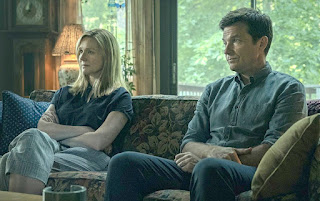Experts estimate that one in 10 Americans is dependent on alcohol and other drugs, and behaviors like gambling, overeating and playing video games can be addictive in similar ways, Once, addictions were viewed as failures of character and morals, and society responded to drunks and junkies with shaming, scolding and calls for more “will power.” This proved spectacularly ineffective, although, truth be told, many addicts do quit without any form of medical treatment. Nevertheless, many do not, and in the mid-20th century, the recovery movement, centered around the 12-Step method developed by Alcoholics Anonymous, became a godsend. Marc Lewis, a neuroscientist and psychologist, is the author of a new book: “The Biology of Desire: Why Addiction is Not a Disease.” Lewis’s argument is actually fairly simple: The disease theory, and the science sometimes used to support it, fail to take into account the plasticity of the human brain. Of course, “the brain changes with addiction,” he writes. “But the way it changes has to do with learning and development—not disease.” All significant and repeated experiences change the brain; adaptability and habit are the brain’s secret weapons. The dangerous changes wrought by addiction are not, however, permanent. Each of these people, Lewis argues, had a particular “emotional wound” the substance helped them handle, but once they started using it, the habit itself eventually became self-perpetuating and in most cases ultimately served to deepen their wounds. Over time, people who are addicted become trapped in the moment-to-moment experiences and disconnected from their past and future. Source: www.salon.com
Throughout her body of work, Laura Linney exudes a quality at once familiar and slightly hard to place, with a dimpled smile that can slide easily from delight to menace and a contralto voice that can be adjusted to the scale of the medium. Still, when it comes to why she became an actor, she has no answer. “I don’t know if I really want to know,” she says. “Maybe when I’m 80 I’ll look at it. Why I decided on acting? For me, it’s always been about a connection that I don’t find anywhere else, possibly.” About the good appraisal Ozark has received, Linney remarks: “It’s a miracle when anything works. There’s a difference between successful and good. Something can be great and nobody sees it.” By the end of the third season, Wendy gives up her older brother Ben to the Navarro Cartel. Although this was done to protect her family, Wendy proves herself to be the ultimate anti-hero of the show. Yet, she is still someone the audience wants to root for.
"I’m having real withdrawal from Ozark. Everything about it worked. All the right people were in the right positions. Everyone had a similar viewpoint. Everyone had a similar work ethic. I loved being in Atlanta. It was an unbelievable crew. Crews on television normally do not stay intact. Ninety percent of our crew stayed the entire time. What that does on a set, the safety that you feel, the unspoken communication, the ease, the comfort, and the fun that you have — I feel like I just landed in a pot of honey. I miss it a lot. Ultimately, Ozark was about our identity. Who are we? Who are you? Who am I? Who are we as communities? Who are we as a country? Identity."
Why does Ozark’s Jason Bateman think audiences responded so positively to the dark drama? Bateman has his thoughts on why the show has struck a chord: "It’s great that Ozark it’s not black and white. That it’s not good vs. evil or villain vs. hero. That’s the satisfying takeaway from our show, and that’s what gives you the anxiety, that there’s a level of tangible and relatable conflict and confusion. You recognize that you might be saddled with the same type of push-pull based on mistakes. There’s not a ton of explosions and effects and overt violence in the show. Hopefully, what is unsettling about it is that it’s humanity pushed right to the edge of what you’re capable of justifying." Source: cinemablend.com

















No comments :
Post a Comment